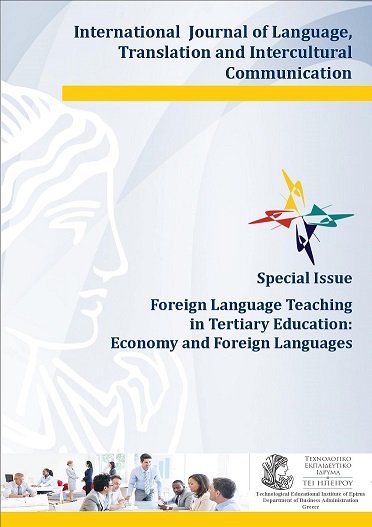Monolingualism or multiple versions for Erasmus+ Guidelines? Incompatibilities and utopia.

Abstract
Since the ECSC Treaty signed in Paris in 1951, marking the beginning of the commun destiny of the first international integration organization until the most recent decisions, such as the single currency or the immigration policies, it is a matter of fact that European Union progresses only with harmonious dialogue and joint actions, built on mutual respect of others’ differences. Nowadays, in the rapidly changing societies, financial concurrence and geopolitical stakes together with arrogance, or dominance, often outweigh the plurilingual communication, thereby leading to worries about linguistic equality within the Union; hence, the subject of the present stydy. Communication in this polyglottic supranational union should be based on an equal pattern, without what the impact of English as lingua franca[1] may be contested and criticised. This combined with the fact that translations are not fully compatible with the English text, implies that European Union does not always resonate at the same frequencies.
[1] http://www.euractiv.fr/section/langues-culture/news/l-anglais-se-confirme-comme-la-lingua-franca-de-l-europe/
Article Details
- How to Cite
-
HATZIDAKI, E. (2016). Monolingualism or multiple versions for Erasmus+ Guidelines? Incompatibilities and utopia. International Journal of Language, Translation and Intercultural Communication, 4(1), 160–169. https://doi.org/10.12681/ijltic.10343
- Section
- Articles

This work is licensed under a Creative Commons Attribution-NonCommercial-ShareAlike 4.0 International License.
Copyright Notice
Authors who publish with this journal agree to the following terms:
- Authors retain copyright and grant the journal right of first publication with the work simultaneously licensed under a Creative Commons Attribution License that allows others to share the work with an acknowledgement of the work's authorship and initial publication in this journal.
- Authors are able to enter into separate, additional contractual arrangements for the non-exclusive distribution of the journal's published version of the work (e.g., post it to an institutional repository or publish it in a book), with an acknowledgement of its initial publication in this journal.
- Authors are permitted and encouraged to post their work online (e.g., in institutional repositories or on their website) prior to and during the submission process, as it can lead to productive exchanges, as well as earlier and greater citation of published work (See The Effect of Open Access).


